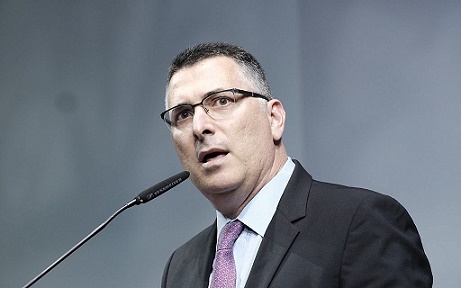Controversial Plans for Gaza's Future Unfold
The Middle East is witnessing a tumultuous debate over the future of Gaza, with multiple proposals on the table amid international backlash and complex diplomatic maneuvering.
Published February 19, 2025 - 00:02am

Image recovered from irishtimes.com
The Middle East is once again at the center of a heated international debate, as various plans concerning the future of the Gaza Strip emerge and provoke widespread controversy. At the heart of these discussions is a proposal by former US President Donald Trump to relocate Gaza's Palestinian population and transform the war-torn region into a 'Middle Eastern Riviera'. This proposal has faced staunch opposition from Palestinians, regional leaders, and human rights groups, who argue it amounts to forced expulsion, potentially classifying it as a war crime under international law.
In response to these controversial suggestions, Egypt has developed an alternative plan which aims to reconstruct Gaza without displacing its inhabitants. This plan involves setting up 'safe zones' within Gaza to facilitate reconstruction efforts and is being considered in collaboration with European and Middle Eastern nations. Talks are ongoing with Saudi Arabia, Qatar, and the United Arab Emirates to gather support and potentially host a conference to address funding for Gaza's reconstruction.
Egypt's proposal counters Trump's vision and seeks to establish a new governance model in Gaza, independent of both Hamas and the Palestinian Authority. This would involve the formation of a Palestinian-led administrative body and a police force comprised mainly of former Palestinian Authority officers, supplemented by Egyptian and Western-trained personnel. The Egyptian government hopes that international support will coalesce around their plan, an idea that has garnered interest from European nations like France and Germany.
Meanwhile, newly appointed US Secretary of State Marco Rubio is touring the Middle East to discuss America's foreign policy approach, particularly concerning Israel and its neighbors. This trip highlights the Trump administration's commitment to its Gaza strategy while leaving open the possibility for alternative solutions if offered by stakeholders in the region. The dialogues Rubio engages in will crucially impact the future political landscape of the Gaza Strip.
Amidst these diplomatic engagements is the forthcoming Arab League summit, now postponed to early March, convened explicitly in reaction to Trump's Gaza plan. This meeting, which will see participation from major regional powers such as Saudi Arabia, Jordan, and Egypt, underscores the collective effort by Arab nations to present a unified front against relocation plans and to propose a viable and humane path forward for Palestinian sovereignty in Gaza.
The ongoing hostilities and humanitarian crisis in Gaza have only intensified these geopolitical maneuverings. The territory has endured extensive damage from years of conflict, highlighted by recent actions against Hamas, which have resulted in significant loss of life and destruction of infrastructure. Reconstruction estimates need upwards of $30 billion, a monumental task agreed upon as necessary by both international observers and local authorities.
Beyond reconstruction, there are significant political challenges to address. The Israeli government under Prime Minister Benjamin Netanyahu demands the complete disbandment of Hamas's military and political influence in the region, a condition critical for long-term peace but contentious in execution. Simultaneously, the international community stands divided, with many urging solutions that preserve Palestinian rights while achieving sustainable peace and security for all parties involved.
As Arab and Western diplomats, alongside various stakeholders, continue to navigate these complex negotiations, the path forward for Gaza remains fraught with peril and potential. Ensuring the implementation of any reconstruction plan will depend on agreements surrounding governance, security, and international cooperation, leaving the world to watch closely as these high-stakes discussions unfold over the coming months.







